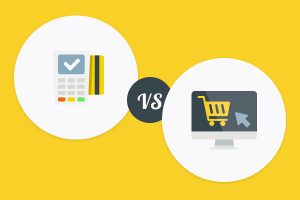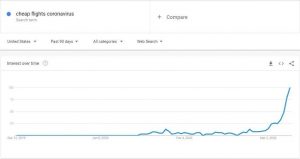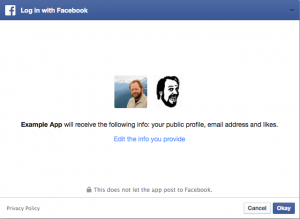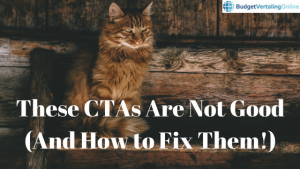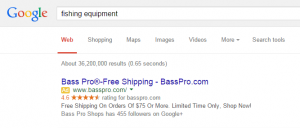
peritivo hour is upon us in a sun-drenched piazza on the edge of Lake Como, arguably one of the most romantic places on earth, and my boyfriend and I are drinking prosecco and talking about . . . Liz Cheney. We are wondering, on this mid-August afternoon, what percentage of the Wyoming primary vote we think she will win.

This isn’t an academic question. I want to bet on Cheney’s chances through PredictIt, a political betting market, and I want my boyfriend, who has a doctorate in political science, to help me. (We are in Como to see his beloved Arkansas Razorbacks play basketball, so I figure he owes me.) He talks about former President Donald Trump’s crusade against Cheney while I pull up FiveThirtyEight on my phone. I then end up so far down the Google rabbit hole that I find myself reading a Republican Wyoming town council member’s MailChimp newsletter. Its analysis of new voter registration lays out a possible path to victory for Cheney, though I’m not sufficiently convinced to start cross-checking the data.
PredictIt allows me to choose from among 10 ways the vote could potentially go for Cheney, with her receiving anywhere between less than 29% and more than 41% of the vote. I shove aside nagging questions about how I wish the election would go—I want Cheney to win, because no Democrat is going to win a general election in Wyoming, and she has at least shown herself to have a conscience. I hover over the “yes” to her winning less than 29%, and try to decide how many shares to buy. Because betting on electoral outcomes falls outside federal and state law in a kind of murky regulatory backwater, PredictIt—which is run by Victoria University in New Zealand—operates under an agreement with the Commodity Futures Trading Commission (CFTC) that allows it to function as an educational effort. Among other things, this means I can’t place a single bet more than $850.
Still, I think about the advice—or was it a warning?—that I received from a PredictIt regular who goes by WineMom (most people operate pseudonymously, for reasons ranging from not wanting to attract IRS attention to preferring online anonymity, as WineMom does): “There’s enough money at stake that people will do anything to get an edge,” she says. “If anybody tells you they just have a really good instinct for politics, they’re either lying or they’re not making very much money.”
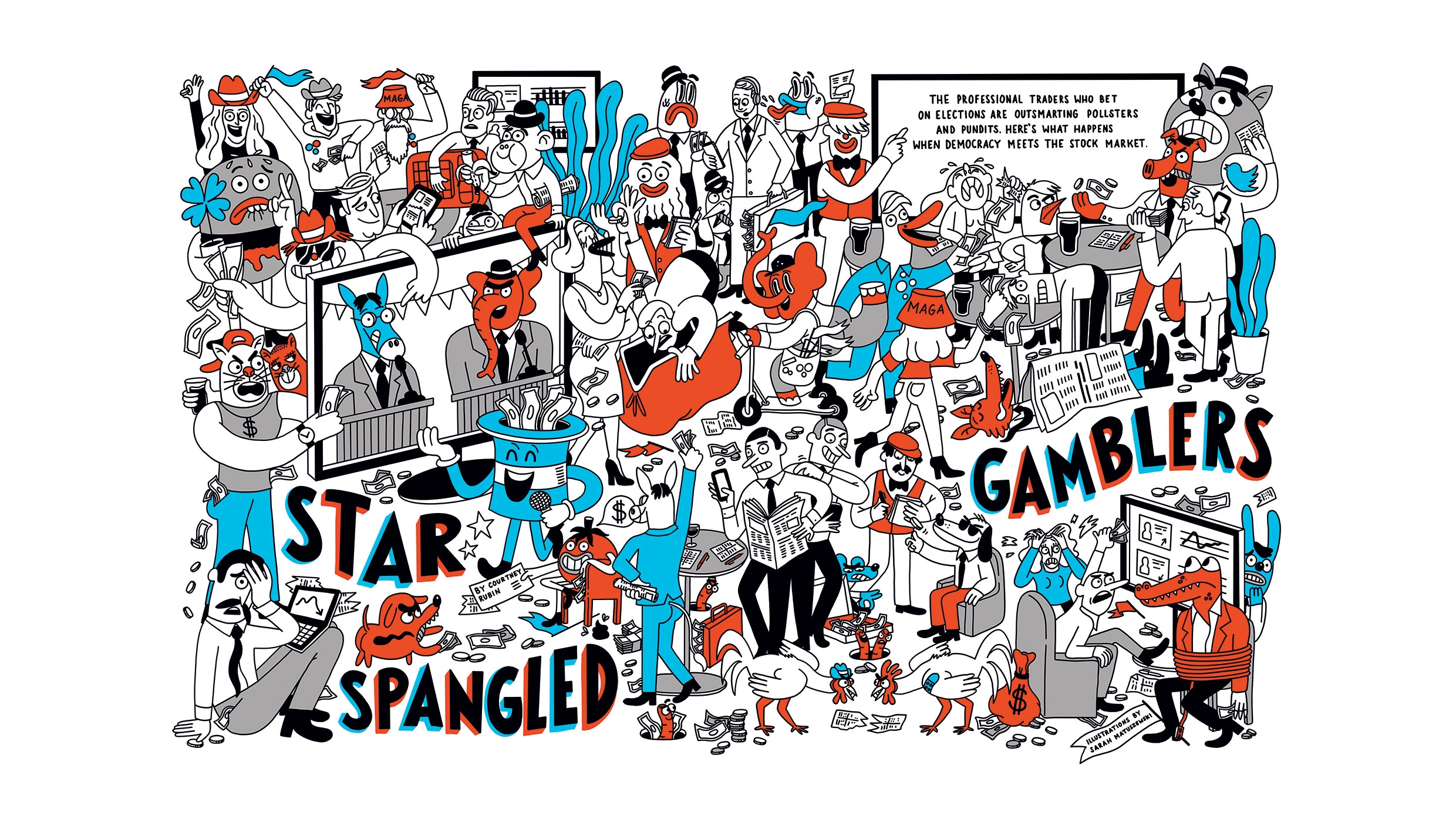
Considering that I’ve done maybe a half hour of prosecco-fueled research and have no special knowledge of Wyoming, a state to which I’ve never even been, I settle for a conservative 100 shares at 33 cents, which feels like a bet on my intelligence as much as anything else. Which is probably why, despite my paltry investment, I spend the day after primary day draining my phone battery refreshing CNN. Before our flight out of Milan, we stop off to see The Last Supper. I manage to spend the 15 minutes I’m allotted in front of the painting without checking returns, but I’m back at it in the gift shop.
At 6:15 p.m. Central European Summer Time, Cheney is at 28.9% with 99% reporting, but I could still lose it all with that remaining 1%. Many people on PredictIt cite the advice of a trader called iSavage, whose axiom is always to sell at 90, meaning that you should collect your winnings once a market hits a 90% likelihood rather than risk everything trying to wring out every cent. So, at 35,000 feet, I do. I make $57 after PredictIt takes its 10% cut (if you don’t count my 9.99 euros in-flight Wi-Fi expenditure).
Awash in dopamine, I listen to two episodes of a political prediction podcast called Star Spangled Gamblers (“We sometimes look like idiots, but other times . . . we look like idiot savants”), read explainers on topics including negative risk and Alaska’s ranked-choice voting system, then overconfidently plow my winnings plus another $200 into bets on U.S. Senate races in Georgia, Pennsylvania, and Wisconsin. How smart am I? Let me check my Predict-It dashboard.
Wall Street bets on politics all the time, just via proxy. Large companies use investment banks to create complex financial products to protect them from the downside of an electoral result that could be bad for their business. Also: Defense stocks go up when the U.S. government authorizes weapons support to Ukraine, and gun stocks go down when there’s a school shooting that might inspire legislation. But individuals directly wagering on political events—so common in the run-up to presidential elections pre-1940 that the activity was published like stock prices near-daily in even The New York Times—has largely been illegal. (See timeline.)
In 2011, when the North American Derivatives Exchange (NADEX) applied with the CFTC to offer electoral outcomes, then-CFTC commissioner Bart Chilton derided the proposal as “political poker,” and the CFTC rejected it in 2012. But a surfeit of academic research has provided some evidence that there is societal value in election gambling, from being a more reliable indicator than polling and punditry to enriching participants’ understanding of politics.
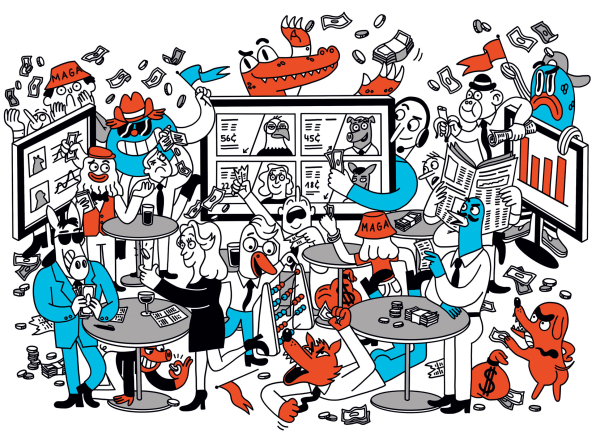
Regulators, though, are still unsure about prediction markets. In August, the CFTC revoked PredictIt’s right to operate, stating that it violated its agreement with the agency. (The CFTC didn’t publicly specify a reason, and PredictIt is fighting the decision, which would require it to wind down by February 15, 2023.) Later in August, the U.S.-based startup Kalshi asked the CFTC for the right to offer election markets starting in late October. A grandiloquent blog post announced its submission: “It is time to bring election markets home, into the light.” (In November 2020, the CFTC granted Kalshi the right to run events markets, such as whether there will be another COVID wave.)
The CFTC requested public comment to help it decide the fates of both PredictIt and Kalshi. What does it want to know? Is this just gambling dressed up in a politician’s favorite navy-and-red striped tie? Could these markets actually be used to manipulate elections? But the commission also wants “tangible examples” that betting on which party controls Congress offers a hedge against the effects of that change. For example, does putting money down on the Democrats to win Congress offset the risk that your taxes might go up if they do? (As of November 7, 2022, the CFTC has not decided whether to allow Kalshi to offer election markets.)
For a lot of people, though, the reason to participate is that if you work hard, find an edge, and you’re the kind of guy—they are mostly guys—who can figure out where the pollsters upload their files and when (not a hypothetical example), you can make six figures in an election year. Politics, in theory, is about creating a material benefit in the lives of citizens. But it is also a numbers game. This is where financial innovation has brought us: Some of the sharpest political observers are more invested in trying to profit from America’s fragile political system than in fixing it. But damn if they aren’t having fun.
Here’s how these markets work. What you’re buying are event contracts saying that something will or won’t happen—Blake Masters becoming the next U.S. senator from Arizona, for example. Shares are priced between 1 cent and 99 cents: If you’re right about the outcome, you’re rewarded with $1 per share; if you’re wrong, you lose it all. You can also sell at any point before the event’s conclusion, which is one place market knowledge (what would be the house edge in the casino) comes into play.
Unlike sports gambling, where you’re betting against odds makers who may be better at math than you, on sites like PredictIt you’re betting against someone else. “You don’t have to be smarter than [an odds maker],” says Derek Phillips, a 38-year-old creative writing PhD dropout who for several years made his living exclusively from PredictIt and earned some $140,000 in 2016 (presidential election years offer the biggest prizes; midterms are more of a little bump). “You have to be smarter than somebody who believes that Trump is going to win the election that he already lost.”
Almost everyone on PredictIt talks wistfully about the days after the 2020 election but before Joe Biden took office, when “free money,” as it’s called, was abundant. In those days, the MAGA faithful were betting for Trump and his cabinet to remain in power as if January 6 had succeeded. You could buy a “no” to whether Mike Pompeo would be secretary of state in the 80-cent range when it should have been in the high 90s (you have to allow a few cents for death). You were looking at a roughly 15% return—guaranteed.
After Biden took office, though, it became much harder to make money, because on an exchange, you can only make as much as other people are willing to lose. “I looked around and realized all the dumb money [had] left, and that means I’m the dumb money,” says WineMom, who shares with me when we talk that she’s an Oregon-based Gen Xer who works at a nonprofit and is a “classic NPR tote-bag, left-leaning liberal.”
WineMom doubled down, though, listening to podcasts about poker math and reviewing material from a statistics class she’d taken in grad school. (She’s one of only two women that the PredictIt regulars I interviewed could name on the site, though of course others may be lurkers or cloaking their identities.)
Wildly Unpredictable: The ups and downs of American political betting
Casual election gamblers tend to be supporters of a particular party, politician, or policy, or they just have a strong conviction about what’s going to happen. For them, the value is in being right, especially when everyone else thinks they’re wrong. That makes them highly susceptible to the serious traders who will happily steal their lunch money.
Those who thrive on the site have a different mindset. They’ll wager on anything where they think they can make money. “Think,” by the way, is no casual hunch; it’s generally backed up by hours of research and strategy. They always buy with an exit point in mind, and often it’s well before election night. Of course, they’re happy to be right too.
Most hard-core traders band together in invitation-only group chats on Twitter and Discord. One of the most successful and exclusive—my description; they are a pretty self-effacing bunch—is a tiny cohort that includes Phillips, the creative writer, who says he comes from “a long line of degenerate gamblers”; Jason Pipkin, a PhD in neuroscience; and lawyer Jacob Faircloth. They sometimes connect on Discord with Domer, the handle for a onetime sales guy who has applied his online poker talents to the prediction markets and last year earned in the mid-six figures. One of Domer’s claims to fame is having identified Sarah Palin as John McCain’s VP pick in 2008 before reporters did, thanks to contacting press secretaries and state fairs and monitoring flight-path websites. (He was betting through Intrade, a now-defunct Ireland-based online exchange.)
The Faircloth-Phillips-Pipkin group, whose actual name changes constantly and is currently “bot cartel,” met during the Obama era, posting in the PredictIt comments section of the presidential approval ratings markets—the slot machines of political prediction gambling, because they pay out quickly, compared to election markets where you may have to wait years. Also, approval ratings fluctuate, so these markets attract the most risk-tolerant gamblers.
These traders divide and conquer, exchanging thousands of messages in a single day, on which thousands of dollars could be made. (Not that it’s all “work.” They share plenty of messages on which no money can be made, such as the viral Instagram video of a guy at a Yankees game using a straw to poke a hole lengthwise down a hot dog and then using the hot dog as a straw for his beer.) There is a lot of poker jargon—recreational players are called fish—and a lot of slang that, as Faircloth puts it, “is not really appropriate to share.”
What else goes on in the group? They call pollsters to see what their polling schedules are, and they email them requesting corrections if they think something is wrong in the data, because it could also impact the aggregates by FiveThirtyEight or RealClearPolitics.
“I look at the cross tabs and top lines, and just sort of make sure everything is correct,” Faircloth says of his reading of polls. “Then, when it’s published to the aggregator or in an article, just double-checking to make sure it’s correctly cited or input in their data files.” It’s a subject of much debate whether event markets are more accurate than polls, but one thing is clear: There’s a lot of money to be made in the markets in understanding polling methodologies and knowing how to bet based on, say, whether a poll includes only registered voters.
They also monitor the endless stream of tweets and news. One thing these traders all know is which reporters have the goods (Domer cites Jake Sherman from Punchbowl News, “who practically has a transcript of what Nancy Pelosi says in closed-door conferences”) and who loves gossip that doesn’t usually move markets (Pipkin describes how Alex Thompson from Politico “tweets ‘standby for news,’ which I hate, and it’s some mid-tier Kamala Harris staffer leaving”). Domer recently moved from Las Vegas to South Carolina, in part to be closer to his wife’s family, but also because “politics kind of operates in the Eastern time zone” and he’d no longer have 3 a.m. and 4 a.m. wake-up calls. He’s subscribing to both internet providers in his new city, as insurance against the smallest of outages.
These guys might skip parties because there’s a vote on the Senate floor, and spend vacations on the phone because a single trade could pay for the whole trip. Phillips recalls going to a funeral for his aunt and feeling unable to turn his phone off. “I didn’t answer it, but I felt it vibrating in my pocket as the service was going on,” he says. All he could think was: I’m missing money. “Who wants to live like that, really?” He stopped doing political prediction full time in 2020, after six years.
There is actually honor among thieves, which is to say, the fastest way to get kicked out of a group chat is dishonesty—lying about a wager, or otherwise doing things that don’t benefit the group. Faircloth says that he has seen behavior “bordering on fraudulent, and that has to be rooted out.” There is no showdown: Someone takes the lead, privately messaging everyone else in the group, the chat goes silent, and everyone (minus the Judas) simply forms another one.
Some of the biggest wins—and, according to big traders, the most fun—don’t come from calling elections. They come from noticing and exploiting a hole in the rules of how a contract resolves, usually with forensic attention to detail and an obsessive amount of arcane research.
These instances are called a “rules cuck,” and the classic story is the 2018 midterms, and the number of seats the GOP would control at the start of Congress. After the election—the GOP had taken 53 seats—an energy trader on the West Coast named AG123 predicted that not all of them would be sworn in and able to vote when the new Congress began, and thus, not yet holding their seats (at least by PredictIt’s rules). He picked up shares of 52 for less than 5 cents—before Rick Scott announced his plans to finish out his term as Florida governor and then take the oath as the state’s junior senator. Pipkin, who saw the receipts, recalls AG123 made something like $60,000. As one commenter put it after the market resolved, “AG123 promptly disappeared, I can only assume to go buy Moët, coke, and/or Teslas.”
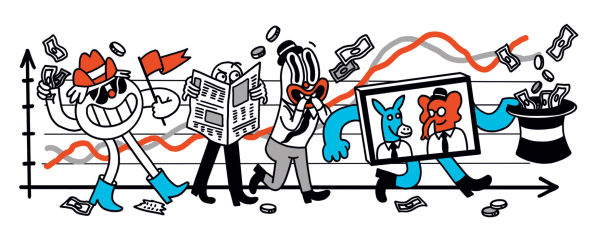
PredictIt’s genial chaos—its raucous comment boards, infamously bad-to-nonexistent customer service, and site crashes during big elections (including 2016)—are ostensibly part of its charm. But the tumult has exacerbated the sense that PredictIt is not an academic pursuit, something reinforced by the site’s steep fees, all of it leading to its potential shuttering by the CFTC.
Kalshi, which was founded by two MIT alums and is backed by such financial industry legends as Charles Schwab and private-equity pioneer Henry Kravis, is clearly positioning itself as the responsible adult in the room. There are no comment boards, and Kalshi issues clarifications for confusing resolution mechanisms. In August, the headline on its “Will student debt loan be forgiven?” market included the warning: “Read the rules.”
Many of the big PredictIt traders also use Kalshi (often at the personal invitation of cofounder Tarek Mansour, who slid into their DMs earlier this year to let them know his company had launched its Biden approval ratings market), but they have issues with it. Faircloth, who has been on Kalshi since it opened last year, says it’s less user-friendly. Among other things, it shuts down at night, like the stock market. More importantly, it’s tougher. A lot of Kalshi’s markets feel like they require a graduate degree to play, or at least to play well. How do you win in a market where the wager is on what’s going to be monthly consumer price index inflation when there are five dozen forecasts by expert economists and banks, all of which are published to the Bloomberg terminal? “There’s a lot of people who are intimately familiar with things like CPI inflation or interest rates, so it’s harder to find an edge,” Faircloth says. “Unlike political markets, where you can bet your opinion and you don’t necessarily even have to have an edge. It’s just fun to do.”
Domer has not been daunted. He says he spends a lot more time following the Federal Reserve, because Kalshi has “some very liquid markets” on what the Fed is going to do next. Other markets, like what the S&P 500 will close at on any given day, barely see any action at all. People also complain about the lack of liquidity on Kalshi: It takes at least two days for funds to transfer, and withdrawals before 30 days aren’t allowed.
Put it this way: When Alex Keeney, one of the hosts of Star Spangled Gamblers (and the former director of content for Jordan Belfort, aka the Wolf of Wall Street), was trying to gin up support for Kalshi’s bid to the CFTC for predictive markets, he tweeted some frequently asked questions, one of which was, “What if I don’t like or use Kalshi?” His reply: “Suck it up. It doesn’t matter which marketplace you prefer to wager on, this decision will set the tone for all of them.”
With PredictIt’s fate uncertain and Kalshi’s application for election markets under review, it would be hard to bet on the fate of political prediction markets it would be hard to bet on the fate of political prediction markets, though Kalshi at one point was confident enough to have a “Countdown to Election Markets” clock on its website, which quietly timed out on October 28 and disappeared. Meanwhile, Insight Prediction, a 6-month-old crypto-based events exchange, has offered markets on both “Will PredictIt Survive?” and “Will Kalshi Offer a U.S. Election Market by October 25th?” (The company’s founder assures me that he was not trolling his larger rivals.)
In late September, you could buy shares that, yes, PredictIt would survive for 21 cents, and that, yes, Kalshi would offer the election market at 29 cents. By November, after a report that the CFTC staff had recommended that the commissioners vote no on Kalshi’s application, the PredictIt market had collapsed to 11.5 cents and the Kalshi one, pushed back to election day, traded at just a nickel. So they’re both long shots, but as I’ve learned, that’s not the same as nothing.
PredictIt and to some extent Kalshi are under some pressure to show some greater good comes from these markets. Flip Pidot, a former trader who’s been working to establish political prediction markets since 2008—and who’s worked with both PredictIt and a crypto-based alternative called Polymarket—talks about an ancillary benefit of these markets being greater civic engagement. When I ask if this translates to, say, voting in greater numbers, he says, “I’m not sure that it has been measured, or even if it has been, if it’s yet to the size of being measurable.”
Pidot, like many prediction market proponents, believes the down-to-the-second changes in price on these exchanges offers a more accurate picture than polling, an industry that has been ripe for criticism long before getting the 2016 election wrong. (It’s perhaps ironic that one major reason for the end of political betting in America, which accurately predicted 11 of 12 presidential elections between 1896 and 1940, was the rise of scientific polling, which was more respectable.)
David Rothschild, an economist who has studied political prediction markets, calls them “a uniquely accurate, and timely, signal,” echoing Pidot’s sentiments that they are particularly superior when news breaks that will affect polling but that the numbers don’t yet reflect. No less than FiveThirtyEight’s Nate Silver has also noted the speed of betting markets’ reaction as one of their “advantages over model-based approaches.” Silver also has criticized PredictIt, specifically, for being “biased toward candidates that young white dudes who spend a lot of time on the internet like.”
Prediction market participants do appear to be more media literate, interpreting campaign news in a way that most citizens do not. Keeney, the podcaster, says that he uses the markets as a kind of “instant lie detector” on the story lines that political reporters are selling. He points to Kari Lake of Arizona, the front-runner whom Trump endorsed for governor, who is “like cartoon character MAGA,” and reporters went hard on the fact that she was underperforming.
“But if you went over to PredictIt, the race wasn’t close at all,” Keeney notes. “The constant hype narrative that the Trump-backed candidate was bound to lose was just completely made up.” (Keeney exaggerates slightly for entertainment, as befitting his podcast: Lake won 48% of the vote, with her closest competitor garnering 43.1%.) WineMom also tells me how she became so much more aware of how the news can be quite different from reality, how it’s “a narrative built around what’s compelling and not a prediction about what’s likely.”
For Kalshi’s Mansour, the greater good is in offering what he calls “a new form of insurance against bad outcomes.” If you think betting on whether a Category 5 hurricane hits sounds morbid, well, for Mansour, it’s a service. As he wrote on Twitter: “Thousands of homes have no access to hurricane insurance today because big carriers won’t underwrite them.” But as someone who grew up in south Florida, do I really want to be the person who reads about death and destruction and calculates my return on investment?
Pipkin says that his time in political prediction markets has made him more cynical but also more hopeful. He says he has a much better sense of politicians as people and what they actually care about, versus the things they don’t know anything about or are just going along with. You have to understand the motivations of the players, he says, and see things as they see it, “so there’s a little bit of empathy required.”
But most of the traders balk at the question of whether these prediction markets are good for democracy. Their response: Does it have to be?

(15)
